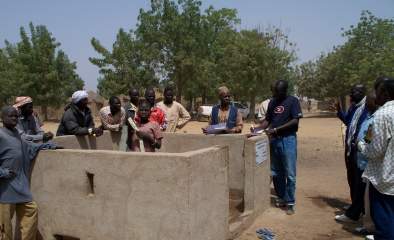What is the vision and mission of your organization?
The vision of IUCN-PACO is the development of a just world which promotes and conserves nature. The main mission of our organization is to advocate for a sound political, economic and social environment that supports the sustainable management and use of terrestrial and aquatic resources, soil conservation and biological diversity, benefiting both people and the ecosystem.
Why did you decide to become a GWP Partner?
Our partnership with GWP was motivated by the fact that GWP is the largest global network promoting IWRM. One of the pillars of IUCN-PACO is the Programme on Wetlands and Water. One of our main priorities is to advocate for IWRM. So, it seemed only logical that IUCN and GWP work together to strengthen the impacts of their actions, especially when it comes to better water resources management for poverty reduction.
What have you found to be the benefits of being a GWP Partner?
GWP’s support contributed to the reflection on how to structure the Programme on Wetlands and Water and how to launch it. GWP is still participating in the deployment of the Programme in some water basins. Joint projects were set and proposed to donors, based on our partnership.
What is one challenge facing the management of water resources in your area of expertise?
The main challenge IUCN is facing relates to the difficulties in developing within different countries and basins. Financial resources mobilization is the major obstacle when it comes to capacity development.
Are there any special projects or initiatives that you would like more widely known?
Personally, I think that the notion of water transfer is not well documented. This is a real problem because it is likely to become a reality in one of the basins in Central Africa, with a potential transfer of water from the Ubangi river to the lake Chad. If examples from all over the world are better shared, this case might draw the attention of decision-makers at the highest level, so that what is planned in our region relies on sufficiently clear and participative foundations.

